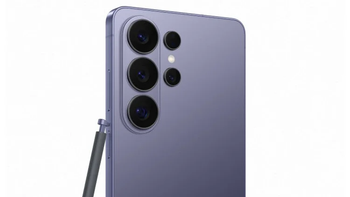Xiaomi followed Samsung's example in throttling apps but not Geekbench (allegedly)

Recently, four Samsung Galaxy flagship lineups (including the S22) were pulled from the Geekbench database after Samsung was found to be throttling these phones' performance. Now, Android Authority reports that Xiaomi might be facing a similar predicament and accusations of throttling its devices, and more specifically, the Mi 11.
Geekbench co-founder John Poole stated on Twitter that he has observed suspicious behavior with the Geekbench test results with the Xiaomi Mi 11. It seems that the company is throttling benchmark apps when they are disguised as games, but running them at full speed if they are not.
Poole stated that the performance throttling that the company is doing is based on app names. He found out that disguising the Geekbench app (which is an app designed to test phones' performance) as Fortnite resulted in single-core performance scores dropping by a notable 30%, while multi-core dropped by 15%.
Okay, well, don't other brands do the same? The issue in itself is not really in the fact that Xiaomi seems to be throttling demanding apps, but pretty much, the lack of transparency. And also the fact that benchmarking apps are not throttled could make it look like Xiaomi is trying to get a better result in benchmarks than what would a normal user experience using the phone.
Pretty much, throttling games but not throttling benchmarks apps makes those benchmark results not reflect the real-world performance of the said phone.
And that's actually not all. This is not the first time that such claims were raised against Xiaomi. Last year, AnandTech tested the Xiaomi 11T Pro and reported similar results. However, Poole's test comes not long after Samsung's saga with the throttling where the South Korea-based tech giant experienced high levels of scrutiny for the practice.
We mentioned above that Samsung had a similar situation happen recently, which resulted in Geekbench delisting some Galaxy models from its benchmark results: first, it was the Galaxy S22 series, then it removed the S21 series, the S20 series, and even the Galaxy S10 series.
Samsung was found to throttle the performance of more than 10,000 apps using a service called Game Optimization Service or GOS. The service is designed to manage gaming apps and prevent overheating issues, but it was also found to limit the performance of other popular non-gaming apps, such as Microsoft Office and the video conference app Zoom.
The issue was that the company left out a lot of benchmarking apps out of what GOS was throttling, including 3DMark and Geekbench, pretty much making those apps overestimate the performance of the phones affected. And of course, many people were quite unhappy with this situation.
Okay, but let's give credit when it is due: Samsung did apologize for the situation and then even issued an update for the Galaxy S22 series and the Game Optimization Service. The apology was given by Samsung CEO CEO JH Han, and he apologized to customers and shareholders for the controversy around the GOS.
Well, all in all, we have to wait and see what will happen with Xiaomi after this allegation.
Xiaomi could be throttling the Mi 11, and could end up like Samsung on Geekbench
Geekbench co-founder John Poole stated on Twitter that he has observed suspicious behavior with the Geekbench test results with the Xiaomi Mi 11. It seems that the company is throttling benchmark apps when they are disguised as games, but running them at full speed if they are not.
He also added that similar behavior is observed when Geekbench is disguised as Genshin Impact, another popular online game. Well, what this could mean is that Xiaomi is throttling games, in what we can assume is an effort to limit battery drain and preserve phones from overheating from the extensive chipset demand that games can cause. So far, we don't know if other apps are affected.
This also happens when Geekbench is disguised as other games such as Genshin Impact.
— John Poole (@jfpoole) March 27, 2022
Pretty much, throttling games but not throttling benchmarks apps makes those benchmark results not reflect the real-world performance of the said phone.
And that's actually not all. This is not the first time that such claims were raised against Xiaomi. Last year, AnandTech tested the Xiaomi 11T Pro and reported similar results. However, Poole's test comes not long after Samsung's saga with the throttling where the South Korea-based tech giant experienced high levels of scrutiny for the practice.
For those of you who are curious: here's what happened with Samsung
We mentioned above that Samsung had a similar situation happen recently, which resulted in Geekbench delisting some Galaxy models from its benchmark results: first, it was the Galaxy S22 series, then it removed the S21 series, the S20 series, and even the Galaxy S10 series.
The issue was that the company left out a lot of benchmarking apps out of what GOS was throttling, including 3DMark and Geekbench, pretty much making those apps overestimate the performance of the phones affected. And of course, many people were quite unhappy with this situation.
Okay, but let's give credit when it is due: Samsung did apologize for the situation and then even issued an update for the Galaxy S22 series and the Game Optimization Service. The apology was given by Samsung CEO CEO JH Han, and he apologized to customers and shareholders for the controversy around the GOS.
Well, all in all, we have to wait and see what will happen with Xiaomi after this allegation.
Follow us on Google News













Things that are NOT allowed:
To help keep our community safe and free from spam, we apply temporary limits to newly created accounts: